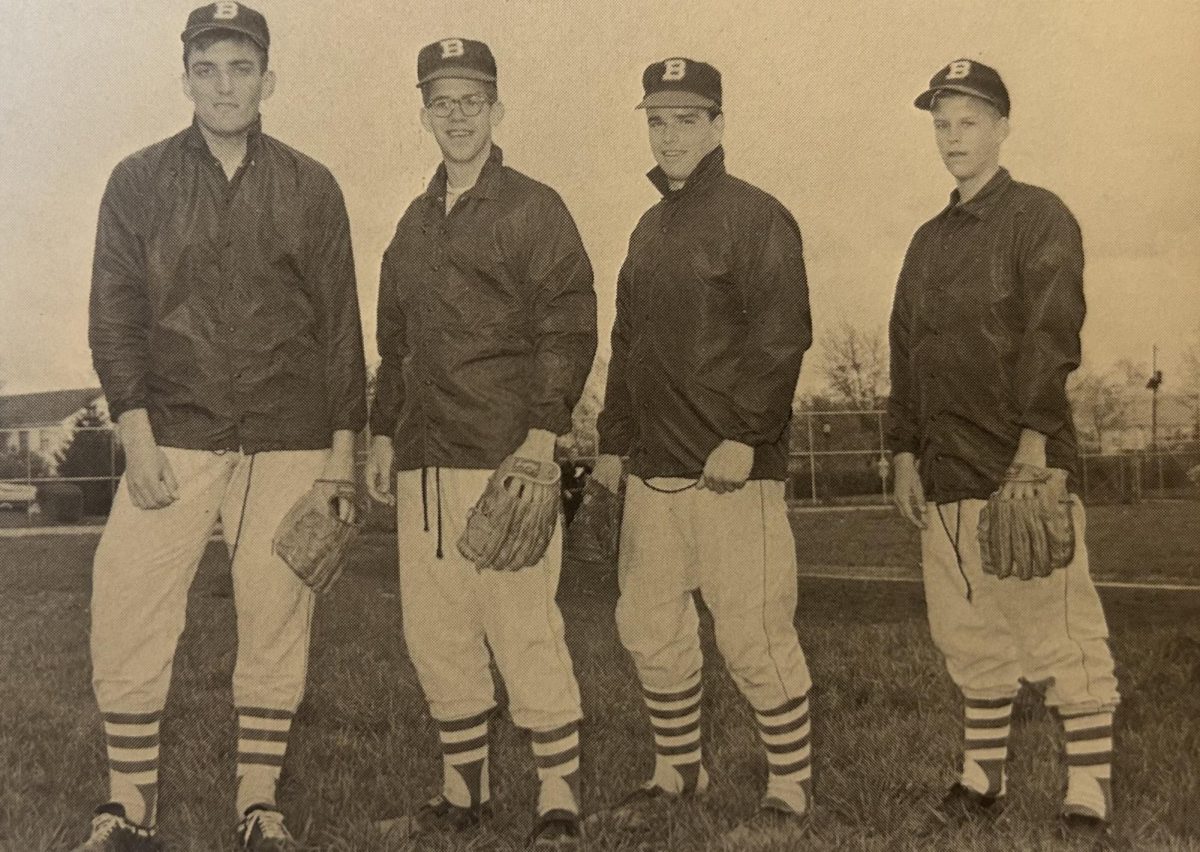As police shootings of Black Americans dominated the media, several graduates of the high school decided to create the Bexley Anti-Racism Project in order to fight racism in the community.
Social studies teacher Anna Schottenstein, adviser and founding member of BARP, explained that the idea of the Bexley Anti-Racism project was originally formed by the creation of the Social Justice Club in 2017. The group back then was founded by Rose Hoffman, Julia Cohn, Halley Dunn and Grace Maley to provide social justice for all throughout the community, she added.
After the shootings of unarmed Black like Breonna Taylor and George Floyd this year, Schottenstein said the girls thought this would be a good time to develop the idea of the Social Justice Club into BARP and fight racism in the community.
Schottenstein added that the main idea of the BARP was to create a group that not only worked on eliminating racism in the community but also to create a change in the curriculum at school in order to incorporate the experiences of different groups of people when teaching subjects like history.
Schottenstein and the members of the BARP conducted meetings with members of the school staff in order to share the experiences of marginalized students to educate them on the struggles these students deal with, she said.
Schottenstein explained that as a white history teacher in Bexley, it is also important for her to hear the perspective of minority students in order to be able to incorporate that into her teaching.
“I can teach as much as I want about African American history, but I don’t know what it’s like to be Black in America,” she said.
In addition, founding member and Executive Board member Kayah Woodford, a Bexley graduate, believes the program is necessary in the community due to her experiences attending the high school.
Woodford said that she felt as though students who were a part of minorities were not encouraged to take rigorous courses and that it reinforced the stereotype of them not being able to achieve as well as their white classmates.
“In all my AP classes, I was one of the only Black people, which added pressure to perform well,” she explained.
She said that one of the objectives of BARP is to change these stereotypes and encourage students of all backgrounds to take rigorous courses if they felt like it could be beneficial to them.
The main goal of BARP is to educate others and amplify the voices of marginalized students who feel as though they do not have a voice in this community, she said.
“Anything to support students with marginalized backgrounds will always be the goal,” she added.
Executive Board member and Bexley graduate Austin Smith said that some of BARP’s events from this summer included a march from the corner of Drexel and Broad all the way down to the Statehouse, which was about five miles.
Some of the other events included a community reflection and a yoga session which were both held at Jeffrey Mansion and helped those who went think about racism in a different light, he added.
Smith explained some of the main messages of BARP including accepting everyone and spreading awareness around the community. He said the main role of BARP members was to reflect these messages throughout Bexley.
“It is no longer okay and it was never okay for us to acknowledge that racism just existed, but we must be a part of the solution and not only be not racist but anti-racist,” Smith added.
Schottenstein also said the program has been transformational for her and that being able to meet with the project members every couple of weeks was really inspiring and helped her better understand what minority students in Bexley were going through.
“I think as a teacher, I am always changed by my students and am transformed by the voices I am hearing,” she added.
She said that as an educator, and as a person, she believes it is important to celebrate differences and stand up against racism.
“I think it is 100% necessary for every student and every teacher to see people for who they are,” she said.
Sophomore Zoe Wright also said her experience with BARP has been very beneficial to her. The project is very eye opening because she is able to hear different perspectives on racism in the community, she explained. She added that she believes the project is a great way to understand how to get involved and help fight racism in her everyday life.
Wright also encouraged everyone to join the program as she believes it is a great way to be informed and learn about the different types of racism and how they could be recognized and addressed in the community.
Sophomore Lydia Baker says she has had an amazing experience being a part of BARP because of the teachers’ willingness to help and listen to marginalized groups.
Baker added that seeing differences in the community already is very rewarding.
“Even the little impacts we have on the community are important,” she said.
She said her personal goal for being in BARP is to be able to have the courage to say no to everyday racism.
“I would like to learn to manage the microaggressions I see day to day and have the courage to say no,” she added.















